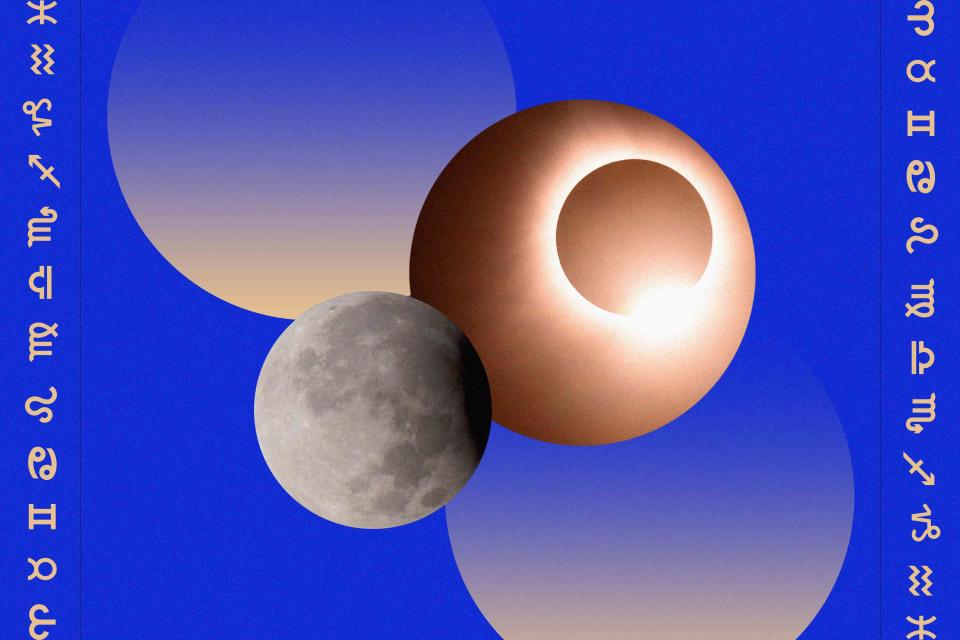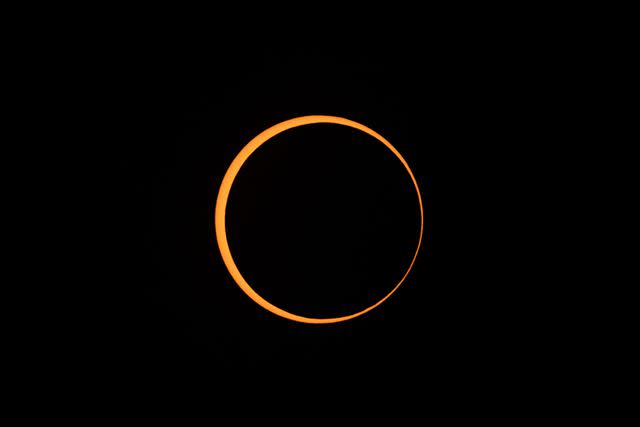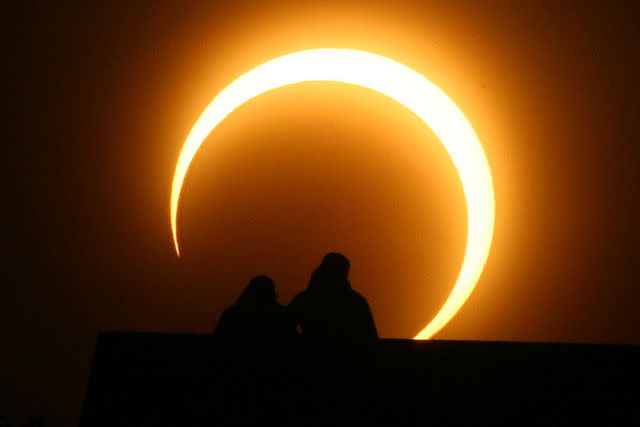The Energetic Difference Between a Lunar Eclipse and Solar Eclipse
Here's what to know about the astrological and astronomical differences between a lunar and solar eclipse, according to PEOPLE's resident astrologer Kyle Thomas

An eclipse is a significant interaction between the Earth, the Moon and the Sun.
There are solar and lunar eclipses, which take place four to six times per year and are astronomically and astronomically different. They take place on new and full moons.
As a result, PEOPLE's resident astrologer says eclipses are "three times more powerful" than a regular lunation. We can feel their effects ringing through the cosmos on the day they occur, as well as weeks before and after they peak.
"Eclipses set up themes for the coming six months," notes Thomas. Plus, he says they will "always be colored by the planetary aspects at the time of the lunation."
Eclipses always arrive in pairs, usually with one followed by the other — but just because they occur in space, however, doesn't mean they are always visible from Earth. This makes the celestial spectacle especially rare.
Related: All About October's New Moon and What It Means for Your Zodiac Sign
Astrologically, eclipses "come in a pair of zodiac signs" for about 18 to 24 months and "always take place" in the following polarities: Aries-Libra, Taurus-Scorpio, Gemini-Sagittarius, Cancer-Capricorn, Leo-Aquarius and Virgo-Pisces.
Once a cycle in a pair of signs finishes, Thomas says "it will return again in roughly 7 to 8 years." He adds, "A complete eclipse cycle takes 19 years and will return to the same degree and sign in the next 19 years ahead."
This is why Thomas says it can be "helpful" to reflect on the past 19 years because it's likely you'll see "similar themes and patterns arrive once again."
Read on for the energetic differences between lunar and solar eclipses, according to Kyle Thomas!
What is a lunar eclipse?

A lunar eclipse appears when the Earth stands between the moon and the sun. This blocks the sunlight from the moon, making it appear in hues of orange, brown, red — or even, black out entirely.
Lunar eclipses always occur on a full moon, making the lunation especially intense when it comes to astrological effects. According to PEOPLE's resident astrologer Kyle Thomas, lunar eclipses are "three times more potent than a regular full moon."
He adds, "They often bring major endings, turning points, revelations and culminations."
Related: Your Horoscope for October: A Month of Breakthroughs and Unexpected Shifts
What is a solar eclipse?

Rick Kern/Getty
A rare "ring of fire" annular solar eclipse is seen on Oct. 14, 2023A solar eclipse appears when the moon stands between the Sun and the Earth, blocking the sunlight from our perspective on Earth when we look up at the giant star. Solar eclipses occur on a new moon.
Similar to lunar eclipses, Thomas says solar eclipses are "three times more potent than a new moon." In contrast, they "bring exciting new beginnings, fresh starts and new chapters often."
What are the differences between a lunar eclipse and solar eclipse?

STR/AFP via Getty
A solar eclipse in China in January 2010.The biggest astronomical difference between a lunar eclipse and a solar eclipse is that they take place on full moons and new moons, respectively. Astrologically, lunar eclipses bring "endings" and "breakdowns," while solar eclipses bring "new beginnings" and "powerful transformations."
Lunar eclipses are also known to bring a "greater emotional intensity" around the period they arrive, according to Thomas, while solar eclipses "tend to be more friendly" and push us "to move in new directions."
Thomas says that eclipses often cause "destined" or "karmic" moments that were meant to happen. Depending on your zodiac sign, he explains how "you will often see a massive change in an area of your life."
When does eclipse season end in 2024?
Eclipse season ends this autumn on Nov. 2, one month after the annular solar eclipse eclipse on Oct. 2, 2024.
When is the next lunar eclipse?

Getty Images
Lunar EclipseThe next total lunar eclipse arrives on March 14, 2025, at 23 degrees of Virgo. Another total lunar eclipse won't take place again until Sept. 7, 2025, at 15 degrees of Pisces.
Related: Here's What the Annular Solar Eclipse Means for Your Zodiac Sign
When is the next solar eclipse?
The next partial solar eclipse takes place on March 29, 2025, at 9 degrees of Aries. Another partial solar eclipse won't take place again until Sept. 21, 2025, at 29 degrees of Virgo.
For more People news, make sure to sign up for our newsletter!
Read the original article on People.

 Yahoo Lifestyle
Yahoo Lifestyle 
